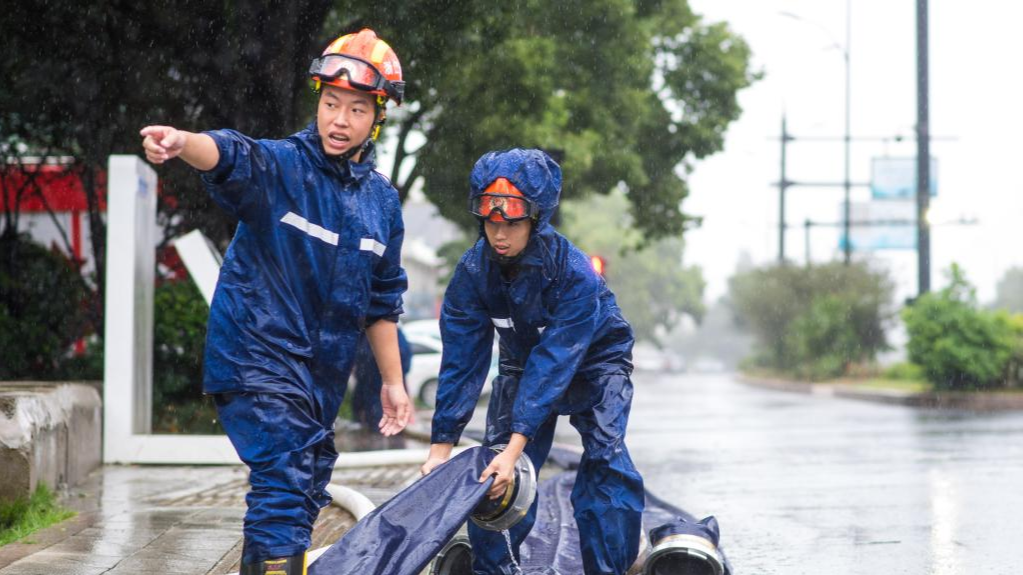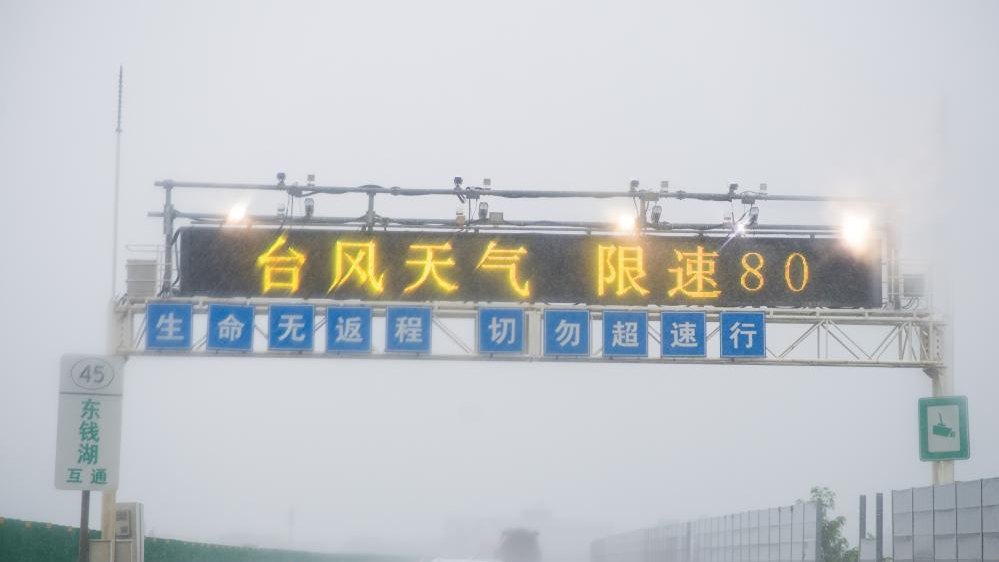
Typhoon Co-May, the 8th typhoon of this year, re-intensified and made landfall in Zhoushan, Zhejiang province, on Wednesday, triggering evacuations and transport suspensions as it moves toward Shanghai.
According to the Zhejiang Maritime Safety Administration, the typhoon had weakened to a tropical depression before regaining strength on July 27. By 10 am Wednesday, its center was located 35 kilometers northeast of Zhoushan, creating winds of up to 25 meters per second (90 kilometers per hour). Forecasts expect it to move northwest and make another landfall near Shanghai later in the day.
The typhoon brought heavy rains and strong winds to coastal areas. Zhoushan and Ningbo recorded rainfalls of over 130 millimeters. Winds reached 36.9 meters per second (133 km per hour) in Ningbo's Beilun district, causing flooding and disrupting transport. The Yongjiang River reached a flood warning level for the first time this year.
READ MORE: China renews yellow alert for Typhoon Danas


Authorities have issued a yellow typhoon alert, warning of sustained level 9–12 winds near the storm's center. Heavy rains are expected to continue in northern Zhejiang, Shanghai, and southern Jiangsu, with some areas facing up to 300 mm of rainfall and increased risks of landslides and urban flooding.
Zhejiang has activated a Level III typhoon emergency response, suspending 47 ferry routes and halting 155 offshore construction projects. Over 450 ships were evacuated to safer waters, and patrols were intensified to monitor risks. High-speed rail services in affected areas were also canceled.
Typhoon Co-May also triggered a red alert for geological hazards in parts of Ningbo and Zhoushan, alongside widespread orange and yellow alerts across Zhejiang, leading to massive transport suspensions. Hangzhou Xiaoshan Airport canceled eight flights (four arrivals, four departures) by 8:30 am Wednesday and secured 35 aircraft overnight, while implementing flight path adjustments. Ningbo Lishe International Airport saw 40 flight cancellations.

Railway services were heavily impacted, with temporary suspensions, including the Hangzhou-Shenzhen High-Speed Railway, Hangzhou-Wenzhou High-Speed Railway, and Ningbo-Jinhua Railway. Some conventional train services, like those from Ningbo to Jinan and Xi'an, were partially restored based on updated typhoon forecasts. Passengers were advised to check travel updates frequently.
Maritime authorities advised vessels to adjust routes, avoid affected areas, and closely follow the typhoon's movement.

Shanghai airports disruption
Approximately 30 percent of inbound and outbound flights from Shanghai are expected to be impacted due to the impending Typhoon Co-May.
According to the Shanghai Airport (Group), the operational capacity of Shanghai's two airports is expected to decline from July 30, with flights either reduced or canceled.
READ MORE: China issues typhoon and rainstorm warning
Typhoon Co-May is expected to impact both the Shanghai Pudong International Airport and the Shanghai Hongqiao International Airport, with traffic capacity set to decrease considerably on Wednesday.
A total of 640 flights scheduled to fly from or to the two airports are scheduled to be cancelled, including 410 flights at Shanghai Pudong International Airport and 230 at Shanghai Hongqiao International Airport.
Passengers are advised to check with their airlines for the latest flight updates and plan their trips accordingly.


